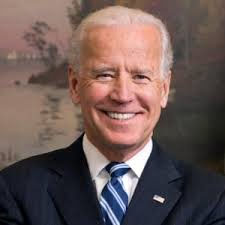Imran Yaqoob
New York
Former Vice President Joe Biden pledged that if he is elected president, he will end President Donald Trump’s so-called Muslim travel ban on his first day in office.
“I will end the Muslim ban on day one. Day one. And I will work with Congress to pass hate crimes legislation like the Jabara-Heyer No Hate Act and the End Racial and Religious Profiling Act,” Biden said to attendees of the Million Muslim Votes Summit, an online conference hosted by Emgage Action, the nation’s largest Muslim-American political group.
One of Trump’s first actions as president in 2017 was to suspend entry to the United States of travelers from seven majority Muslim nations: Iran, Iraq, Libya, Somalia, Sudan, Syria and Yemen, for 90 days. The executive order created chaos at airports around the world, and lawsuits against the ban quickly followed.
After federal judges barred the first ban’s implementation, Trump issued a second ban that was also quickly tied up in federal courts.
A third version of the ban was issued by the White House in the fall of 2017, and this one applied to six majority Muslim countries and two non-majority Muslim countries. The following year, the Supreme Court upheld the constitutionality of the third ban, which remains in place today. Biden said Muslim communities “were the first to feel Donald Trump’s assault on black and brown people with his vile Muslim ban. That fight was the opening barrage in what has been nearly four years of constant pressure, insults and attacks” by Trump against minorities.
Biden pointed to the rise in reported hate crimes in America over the past three years and to several recently announced Trump political appointees who have expressed openly Islamophobic views.
“Donald Trump has fanned the flames of hate in this country across the board,” said Biden, “through his words, his policies, his appointments and his deeds.”
Biden currently leads Trump by an average of 8.6 points in national polls, according to Real Clear Politics’ polling average. And while polling of Muslims is limited, a 2018 Pew Research survey found only 13% of American Muslims identified as Republicans, a number that has changed little over the past decade.







